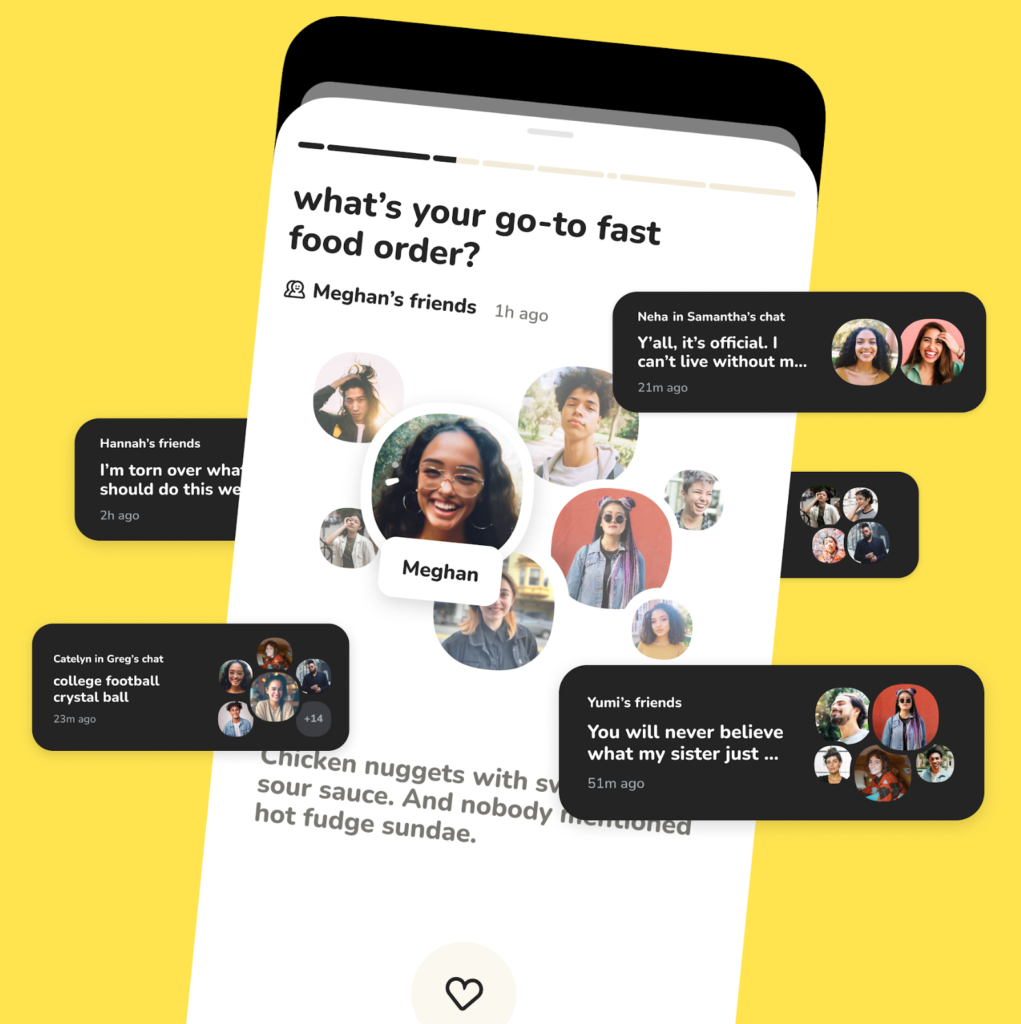Change to try and rise again and not die of indifference. This is the story of Clubhouse, the social app with audio-only content that, during the COVID-19 pandemic, had suddenly achieved enormous popularity, which then waned entirely within a short time. Offering a list of ‘thematic rooms‘ to converse with voice turned out to be a winning idea at a particular moment in time, but not in the long run because having to stay connected for an extended period and at set times is not what people want to do—at that point, attending an event in person or listening to a podcast only when one feels like it is better. Having lost the magic touch, Clubhouse announced a significant transformation to become a messaging app.
Group chat is better than live audio
“Our goal was to make it 100x easier for you to be with friends throughout the day, bump into friends unexpectedly, and get to know new friends through your existing friend groups – even if you don’t have many friends on Clubhouse or a ton of time to spare,” reads the note with which the app presented its new direction.
At the heart of the project are audio-only group chats, which, in essence, are like the Rooms but with asynchronous communication, allowing any interested user to listen and intervene when they wish. Also, because the group is attended by people known to the user, who chooses them among his friends, it is instantly visible when the app is opened. After all, when starting a chat, it is possible to set it to ‘friends only’ or ‘friends of friends’ to know who the participants are and avoid intruders or strangers chasing consensus.
“With Chats, you can push to talk, listen at 2x, tap to skip, swipe to the next Chat, and slide into your friends’ VMs (unless that sounds weird) to chat privately. They’re designed to be fast, fun and personal,’ says Clubhouse.

Voice better than text, say Clubhouse founders
The app, founded by Paul Davison and Rohan Seth, specified two aspects that make audio preferable to text, so according to them, Clubhouse is better than other messaging apps.
“Chats are much faster than text, so your groups share more – more colour and stories, more nuance, and more off-the-record stuff that they would never spend the time to type up. Chats are also transcribed automatically and translated into your language, so you can read them on the go and even talk with friends-of-friends who speak different languages.
Voice makes them more personal than text. With text, you get information. With Chats, you can hear your friends laugh, sense when they seem tired or sick, smile when they get animated, and look at their faces when talking. You actually get to know people.

Conversing with friends is better than following influencers
Forced to look for new ways after having lost most of the interest it generated between the latter part of 2020 and the beginning of 2021 – a period when the social app reached 10 million daily active users and was valued at $4 billion (this should make us understand how and how many strategic mistakes are made by venture capitalists in the ever-over-vaunted Silicon Valley) – Clubhouse intends to focus on intimate relationships between people who know each other and no longer on influencers and creators capable of attracting crowds of followers thanks to their content.
After having eliminated access invitations (an element that, together with the availability of the iOS version alone, had initially favoured the app by pumping up the exclusivity effect), introduced the Android app, announced text chats, with less than 3 million active users and the workforce lightened with the dismissal of more than half of the team, a turnaround was necessary for Clubhouse.
Time will tell if it will be the right turn. However, the big difference in numbers and spread tells us it will take a lot of work to cope with a giant like WhatsApp. Especially if the Western world’s leading messaging app is also about to launch voice chats, the popularity of WhatsApp and its resources as an integral part of Meta could replicate what has happened in the past. What happened with Twitter’s Spaces and Facebook’s Live Audio Rooms shows that although Clubhouse managed to find a new, voice-only approach, once all the larger companies imitated its service, there needed to be more room for the small social app.



